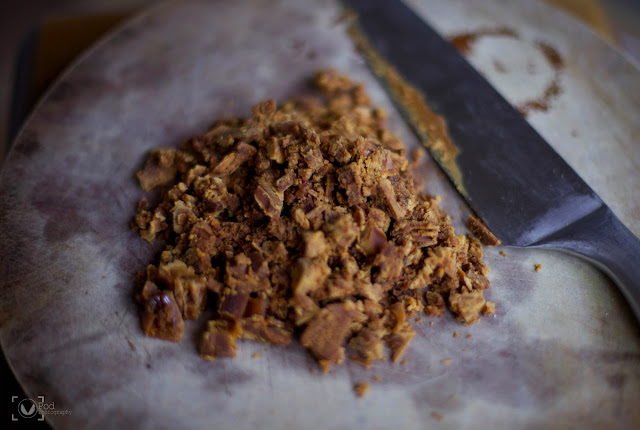Ondeh ondeh is a Malaysian Nyonya kuih (dessert/snack) that originates in the state of Melaka. As we know, Malaysia is comprised of three main racial groups - Chinese, Malay and Indians. Baba-nyonya refers to the Chinese-Malay population which has inter-assimilated each other's cultures and traditions due to marriage links. Thus born a whole host of delicious treats, beautifully intricate and colourful clothing, furniture, table-ware and many more.
Nyonya desserts are extremely popular in Malaysia. I remember you could find them everywhere. There are little pop up stalls by the road-side where the Makcik (auntie) or kakak (older sister) sells these snacks. Or convenient stores that sell almost everything ranging from fresh veg and fruits, all sorts of bread loafs, to packet noodles and canned foods, and freshly made nyonya kuihs.
It's been more than 10 years since my family and I moved to Auckland. The older I get, the more urge I have to learn how to make my traditional cultural foods, to preserve and share my heritage. Malaysian kuihs are delicate, colourful, packed with flavours but are not overly sweet. They really are perfect for morning tea or afternoon snacks. Most ingredients can be found in Asian stores or if not, be creative with substituting ones that you can't find!
Ondeh ondeh are extremely soft and chewy little balls filled with Gula Melaka (palm sugar) and coated with fresh coconut. When you pop them in your mouth and bite down on the pillowy jewels, the liquified Gula Melaka bursts out in an explosion of maple-ly sweetness. Ondeh ondeh rolled in fresh coconut is simply delicious. However, here in NZ it is terribly expensive to buy fresh coconut, so I made do with dessicated coconut. To add more flavour and texture I toasted the coconut slightly so the crunch of the coconut contrasts with the chewiness of the sweet potato dough.
Gula melaka is made from the sap from the flower bud of a coconut tree. The sap is collected through making several slits into the bud and tying a pot below for the sap to drip in. The sap is boiled until it is thickened and poured into bamboo tubes to harden - hence it's shape! Pure gula melaka should be soft and easy to cut into. Those that are hard have other added sugar in it.
[Ondeh ondeh]
300g glutinous rice flour
120g mashed sweet potatoes
100ml coconut milk
110ml water
1/2 tsp pandan extract or 10 pcs of pounded pandan leaf
1 heap tbsp tapioca flour
85ml hot water
150g grated palm sugar + 1 tbsp raw sugar + pinch of salt
A bowl full of fresh coconut (or lightly toasted desiccated coconut)
1. Mix together glutinous rice flour and sweet potatoes.
2. Mix together coconut milk, water and pandan extract.
Alternatively, bring to boil water and pounded pandan leaf, strain, and mix with coconut milk.
3. Over low heat, stir together tapioca flour and hot water and continue stirring (quite vigorously) until mixture becomes almost transparent. The mixture will have a glue-like texture.
4. Pour tapioca mixture immediately into glutinous rice flour and mashed sweet potatoes and stir until well-mixed.
5. Gradually add the coconut milk mixture to form a uniform dough. It is easier to use your hands to mix.
6. Divide the dough into desired portions (for me, it was around 2 teaspoons big).
7. Roll the dough into little balls and flatten to form a disk.
8. Fill each disk with about 1 tsp of gula melaka mix. Wrap up like a dumpling and roll around in your palms to make a smooth ball.
9. Once you've made the balls, cook them in a pot of boiling water until the ondeh ondeh floats up and turn slightly transparent.
10. Strain and roll them in coconut.
11. Serve!
Tip: When rolling out the dough into disks, don't roll them too thin or else when you boil the ondeh ondeh, it will burst and the gula melaka will escape.
These are best eaten the day they are made as they will harden. I'm keen on experimenting with other recipes, such as ones without sweet potatoes! Keep an eye out for them in the future :)














No comments:
Post a Comment